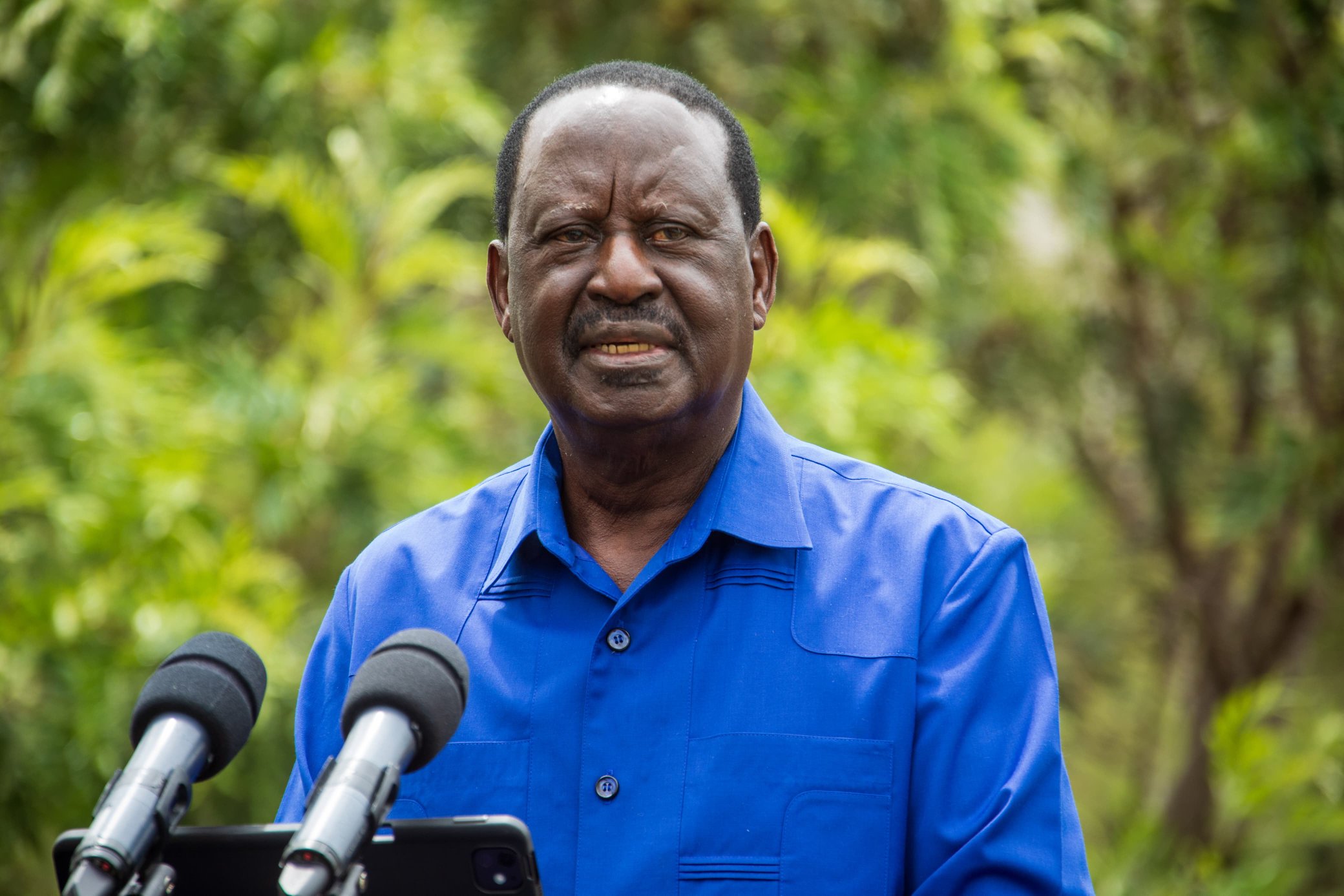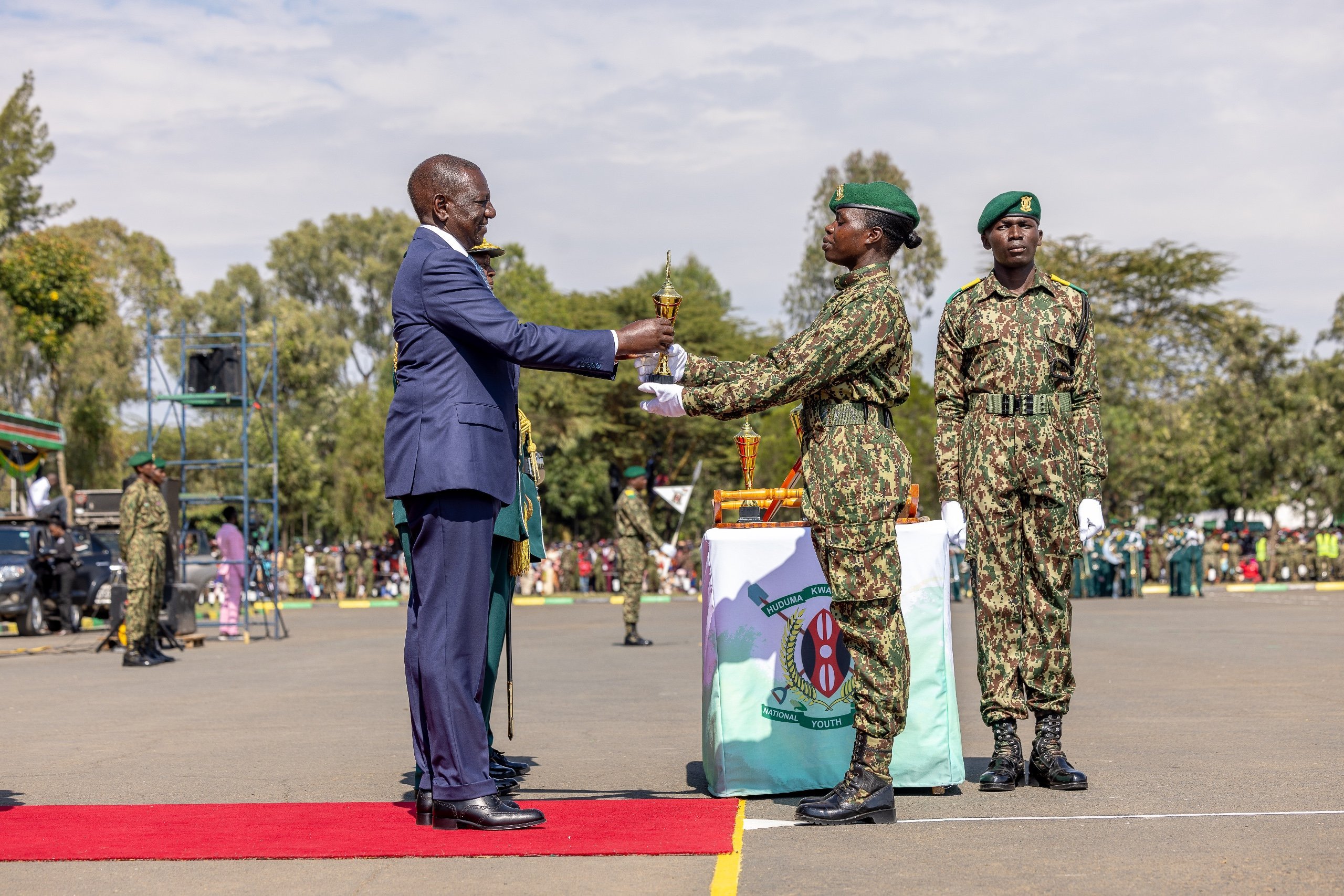Raila AUC flop: Diplomatic gaffes, muddled foreign policy blamed

Kenya’s shambolic foreign policy and diplomatic gaffes made by President William Ruto and his top honchos in the Foreign Affairs ministry are said to have played large part in former Prime Minister Raila Odinga’s loss in the African Union Commission (AUC) chairmanship election.
The Saturday defeat, analysts said, calls for Kenya to re-examine its foreign policy, particularly its engagement with several African countries and its involvement in regional and international conflicts.
On Saturday, February 15, 2025, Kenya suffered a significant blow after Raila Odinga was defeated in the AUC polls.
Raila, lost the hotly contested race to Djibouti’s foreign affairs minister Mahmoud Youssouf, with several political observers telling People Daily that it was a defeat of Kenya’s own making.
A combination of last-minute blunders and shifts in events, according to political commentators, may have cost Raila — who has lost five attempts to become Kenya’s President — the coveted job, extending his lifelong quest for an elusive victory.
Youssouf won 33 votes in round seven, the last round of voting, to claim continental glory. Raila had taken an early lead in rounds one and two, securing 20 and 22 votes, respectively.
The Djiboutian trailed closely with 18 and 19 in the initial rounds. Madagascar’s former foreign minister Richard Randriamandrato managed 10 and seven votes, respectively.
Reacting to his loss, Raila said he was not sure about who voted for him and against him.
“The vote was a secret ballot, so, I don’t know who voted for me or against me … Those who didn’t vote for me exercised their democratic right. When you go to a contest, there can only be two outcomes. You can win or you can lose,” said Raila.
Kenya’s biggest blunder was its failure to use its embassies in campaigning for Raila, said Prof David Kikaya, a former long-serving head of the foreign desk at the Ministry of Foreign Affairs and now a lecturer in international relations at the University of Nairobi.
“The secretariat was only interested in engaging presidents and heads of government, forgetting that our foreign envoys are the people on the ground who could have influenced these nations to support Raila’s bid,” said Kikaya, adding that Kenya also didn’t try to engage the regional blocs.
Religion element
The religion element might have also contributed to Raila’s loss, Kikaya said.
“Let’s look at the Christians vs Muslims factor on the African continent. Most of the countries Kenya campaigned against were Muslim-oriented,” he said.
Echoing these sentiments, an officer at the Foreign Affairs ministry who requested anonymity because he is not allowed to speak to the media about the issue, said Kenya’s diplomatic corps has been hijacked by political patronage, sidelining seasoned diplomats for party loyalists and campaign rally ushers.
“Our embassies are now led by individuals whose only qualification is allegiance to the ruling party. This isn’t diplomacy, its an auction of Kenya’s international standing,” said the officer.
Raila’s loss also had something to do with how Kenya has handled the crisis in the Democratic Republic of Congo, said Wiper party leader Kalonzo Musyoka, who previously held the Foreign Affairs docket.
“It was obvious that the Southern African Development Community supported the Djibouti candidate because they were protesting over our decision to support Rwanda in the DRC issue. The defeat is very embarrassing to our country,” said Kalonzo.
Machakos Deputy Governor Francis Mwangangi questioned Kenya’s current image beyond its borders, especially as Raila’s defeat came soon after a report published worldwide revealed that President Ruto was the second perceived “most corrupt on Earth and best in Africa”.
“Do we as a country observe human rights, respect our Constitution, and exercise the rule of law?” he posed.
“If yes, why extrajudicial slaughtering or even senior public officials ignoring court decisions and resolving when to adhere to those judicial decisions at will and time of their own? Why forced abductions, killings and disappearances?”
Raila’s defeat is linked to how Kenya handled the Democratic Republic of Congo (DRC) and Israel-Gaza armed conflicts, said Mwangangi, a PhD student in international relations.
“Sometime back Kenya was all over media on the wrong side as a result of what I term as ‘the Sahrawi Arab Republic’ diplomatic miscalculations, pronouncements and actions. Do we as a country still have any operating foreign policy in place?” he added.
Corrupt leadership
Mary Susan, a communication specialist, said that Raila’s defeat was not just a personal defeat but a glaring indictment of the failed and corrupt leadership in Kenya.
“The very government that poured millions of taxpayers’ money into his campaign could not even secure the votes needed to guarantee his victory,” Susan said.
“Instead, Kenya has been humiliated on the international stage, losing to Djibouti, a country with a fraction of Kenya’s political and economic influence.”
The world, she said, sees Kenya for what it is – a nation run by a government that has abandoned its people.
“A government that thrives on oppression, abductions, excessive taxation, unemployment, and a skyrocketing cost of living. A government that has crippled healthcare, destroyed the education system, and made life unbearable for ordinary Kenyans. How could anyone expect Africa to rally behind Kenya’s candidate when our leaders have become the perfect example of bad governance?”she said.















